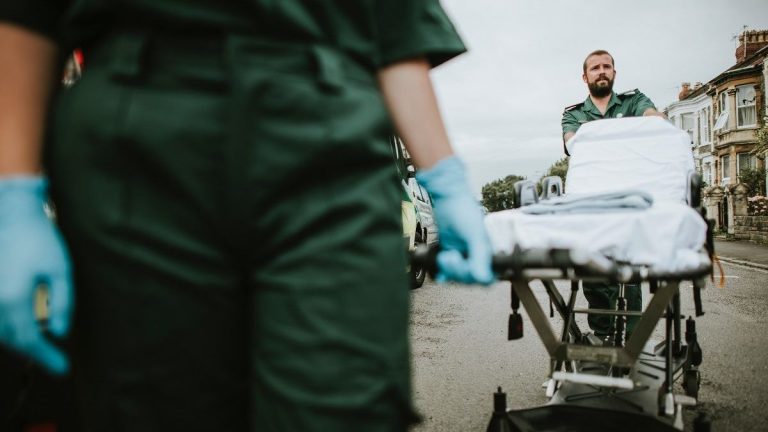
In the first moments after a disaster or traumatic event, affected people may need medical, material, social and emotional care. After the initial actions aimed at guaranteeing their safety and physical integrity, it is often a common practice to offer immediate psychological support.
What is psychological first aid?
Psychological first aid is called psychological intervention in the course of a crisis, accident, or traumatic event. The assistance of the affected people should help them to cope adequately with the crisis and minimize future negative psychological consequences.
Psychological first aid: WHO definition
According to the definition made by the World Health Organization (WHO) in the context of emergencies, psychological first aid is “a supportive response to a human being who is suffering and may need help”. This response can include actions such as listening, comforting, and helping people get in touch with their loved ones. It is also important to provide information and practical support that meets the basic needs of affected people. This assistance must be provided in a way that respects the dignity, culture, and capacities of those affected.
On the other hand, the practice of psychological first aid is not restricted to mental health professionals and can be carried out by people without specific psychological training.
PAPs can include the following elements:
Provide practical care and support.
Assess needs and concerns.
Meet basic needs (water, food, information, etc.).
Listen to those affected, in a respectful way, without putting pressure on them.
Comfort each person and help them feel calm.
Protect people who may be harmed.
Similarly, it is relevant to know what is not within the PAP:
It is not something that only health professionals can do.
Nor is it professional advice.
It is not a conventional psychological report.
Nor does it consist of a detailed analysis that includes the exact sequence of events.
Other situations for PAPs
This type of care is usually put into practice in extraordinary situations, such as humanitarian disasters, accidents, terrorist attacks, etc. However, due to their preventive value, they serve to accompany and help people to face a difficult and extraordinary situation, far from their daily life. From this perspective, they are of special interest to children.
Examples of situations that could benefit from the application of PAP in children can be:
The conflictive divorce of the parents.
The serious illness or death of a close family member or friend.
Being a participant or witnessing a serious accident.
Etc.
Goals of psychological first aid
PAPs aim to prevent the onset of acute stress and post-traumatic stress syndromes.
In this way, the main goal is to restore emotional balance and help the person to take concrete steps towards coping with the crisis. This includes proper handling of feelings and reactions, controlling subjective components of the situation, and beginning the problem-solving process.
Therefore, the ultimate goal of the PAP is to manage the traumatic event in a way that minimizes the risk of those affected suffering sequelae after the event.
Who to offer psychological first aid to
Early psychological support is effective in the recovery of people affected by trauma resulting from a crisis. This includes the people affected or directly involved in the event. However, it should also include people whose involvement is indirect, such as family members and witnesses.
In short, all those people who have seen their emotional state affected as a result of the critical event should be included.
Finally, it should be noted that help should never be forced on someone who voluntarily does not want to receive it.
Determinants of psychological first aid
How a person will be affected after a traumatic event depends on multiple factors. First, the type of event, its severity, and duration. The circumstances and characteristics of the individual will also be of great importance. In this way, age, character and personality, their life experiences, etc., will determine how the events will affect the person. All of them are factors that should be considered when putting psychological first aid into practice.
When to apply psychological first aid
Although affected people may need help and support for a long period after a traumatic event, PAPs should focus primarily on the people who have been affected very recently by it. However, sometimes these aids can last for days or weeks, depending on the duration of the event and its severity.
The convenience of its application focuses on the period immediately after the disaster, although the usual is usually from 2 hours later to 7 days after the event.
In any case, the application of PAP is intended to reduce the level of stress and promote adaptation and coping in the short, medium, and long term, beyond the specific time to which we refer.
Where is psychological first aid dispensed?
PAPs can be implemented anywhere that is safe enough to do so. The usual thing is usually in places where the same event or accident has occurred or in health centers where those affected have been transferred.
In this way, the idea is that there is a minimum of privacy to speak with the affected person. Especially in cases of violence and certain types of events in which the dignity of the person can be affected.
Where appropriate, psychological first aid can be carried out in the consultation of mental health professional.
Preparation of psychological first aid
Before applying psychological first aid, it is necessary to survey the environment. On the other hand, it is necessary to know what happened and the scope of the situation. Finally, there must be a coordination of all the personnel involved in the emergency, if it is the case.
An essential prior step is the identification of the people who need assistance on the scene.






